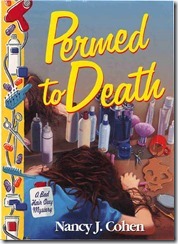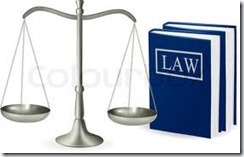What’s the difference between line editing and copy editing? After your work gets accepted by a publishing house, your story editor will comb through it line by line looking for problems in structure, pacing, continuity, and logic. She’ll ask questions in the margins, make deletions, add lines where appropriate, and suggest improvements to some scenes.
So what does a copyeditor do that is different? This skilled editor focuses on grammar, punctuation, and spelling, as well as providing another set of eyes to detect omissions and errors. A word of advice—don’t use colons or semicolons as they may translate into peculiar characters during digital conversion. Consider an emdash instead. The same warning applies for the ampersand sign. Type out the word “and”.
After you polish your work umpteen times, you’ll have to suffer through three more reads for your story editor, copyeditor, and page proofs. And believe me, you will need each pass-through. I always find things to correct, no matter how many times I polish my stories.
Having just finished the latest set of copyedits for Hanging by a Hair, #11 in the Bad Hair Day Mysteries, I’d like to share what I learned. This time, I wrote the changes in a file I’m calling Style Sheet for this particular publisher. Keep in mind that each publishing house will differ in how they like things done. I’m not talking about fonts and line spacing. You can find that info in their submission guidelines. So what do I mean? Let’s take a look at my notes.
Remember when you used to please your teacher back in your school days? Each editor has his or her pet peeves. Learn them.

Here are some preferences for my story editor:
Use he said/she said instead of too many action character tags. [Note: my other publisher prefers just the reverse.]
Don’t use “her eyes rounded/bulged/widened” unless your character is looking at someone else. Or say, she felt her eyes widen. [I don’t particularly agree with this, but hey, I aim to please.]
Be wary of making the amateur sleuth appear too nosy.
Avoid phrases like sounds “infiltrated her ears.” Use “she heard.”
Watch “his eyes glittered, blazed, darkened,” and let the dialogue speak for itself instead.
Don’t use Publix or Home Depot. Use supermarket or hardware store.

Now along comes the copyeditor. What sorts of things does she point out?
Capitalize wine types, i.e. Chardonnay [Again, another publisher might not do this.]
It’s a to-do list, not a To-Do list.
Sink into her bed, not onto her bed.
Seasons are not capitalized, i.e. fresh scent of spring, not Spring.
It’s caller I.D., not Caller I.D.
Uh-oh, not Uh, oh. [Again, my other publisher would do it the second way.]
These should be one word rather than two words or hyphenated:
Babysit, Checkout time, Coffeemaker, Doorbell, Doorknob, Fairyland, Hairbrush, Kindhearted, Lampposts, Midair, Peephole, Semisweet, Signposts, Timepiece, Townhouse, Windowsill, Workhorse, Wristwatch.
This should be hyphenated:
Bang-up job, Blow-dried her customer’s hair, Blow-out (as in, cut and blow-out), Boarded-up opening, Bottled-up rage, Cobalt-blue, Community-minded, Cross-referencing, Crime-solving skills, Class-action lawsuit, Crowd-buster, Deep-set eyes, First-timer, Freeze-dried foods, Going-away party, Good-quality wood, Hang-ups, Hard-boiled eggs, Heavy-duty belt, Heavy-set guy, High-rise, Higher-paying, Hurricane-force life, Hurricane-impact windows, Kettle-shaped clock, King-size bed, Last-minute problems, Late-afternoon air, Less-traveled, Lesser-known, Loose-fitting, Miles-long trail, Much-needed break, Next-door neighbor, Non-profit, Older-era movie star, Open-air entertainment, Orange-colored sport coat, Pet-grooming service, Plus-size lady, Put-down (as in, giving a put-down), Ranch-style house, Red-painted fingernails, Second-degree misdemeanor, Second-floor balcony, Short-staffed, Shoulder-length, Somber-faced, Stick-straight hair, Strike-out (as in, another strike-out), Thank-you notes, Three-tiered confection, Wheat-colored hair, Work-related, Wood-planked dance floor.
<><><>
I’ve printed these out so I can keep them by my side during subsequent drafts or revisions. It helps to know how your publishing house likes things done. You can disagree with suggested changes if they would alter your voice. Plus sometimes copy editors make mistakes. When this happens, point out that the original way stands and perhaps include evidence. For example, one copy editor once changed I-95 to Interstate Ninety-Five. I pointed out that no one here refers to it that way. I-95 stood its ground. In another case, the editor misspelled the name of a car model. I sent back a copy of an ad with the correct spelling. For the most part, though, by making many of these desired word or phrase choices early on, you’ll both be happier.








































